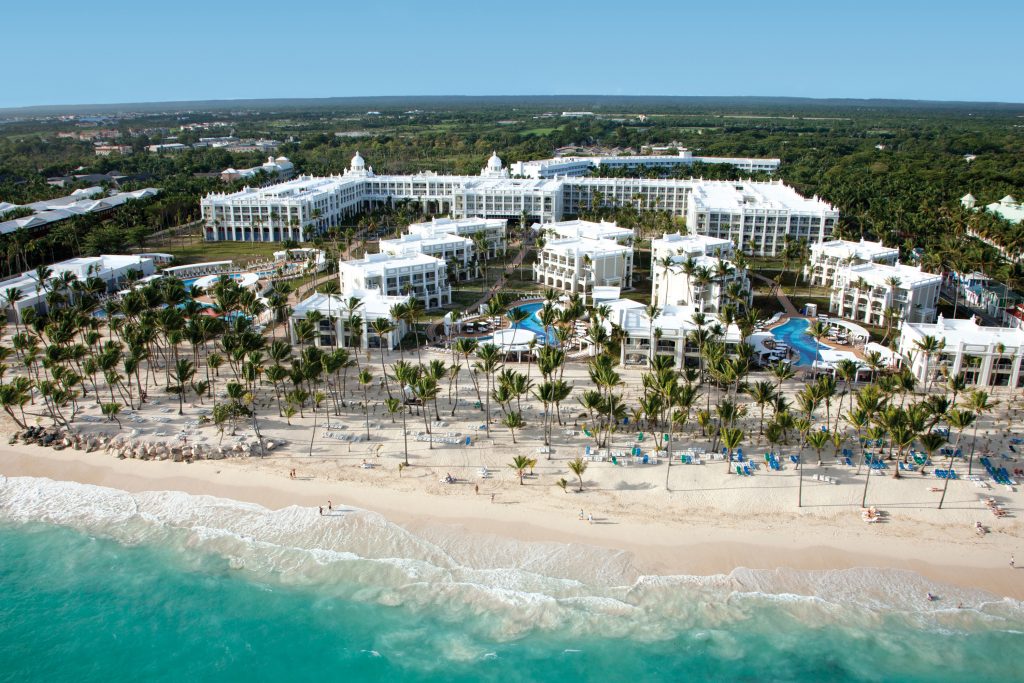Skift Take
TUI’s evolution to that of an end-to-end travel provider is set to accelerate next year. It is fast becoming a tourism company in a class of its own.
TUI Group is to spend $1.1 billion (€1 billion) over the next year transforming itself into what it calls a “content” business as it continues its shift away from a distribution and tour operating model.
The move will see increased investment in key areas such as hotels and cruise ships, which the company believes will make it a less seasonal business with a higher cash conversion.
TUI Group’s expansion plans come on the back of another profitable year. For the 12 months to the end of September 2016, the company made a pre-tax profit of $656 million (€618.3 million) — an increase of 32.7 percent.
The growth in profit came despite certain challenges with geopolitical problems in Turkey and North Africa costing the company around $53 million (€50 million).
Growing cruise and hotels
TUI’s desire to control more of the customer holiday experience sets it apart from many of its tour operator peers.
Rather than just signing deals with hotel chains or selling cruise holidays, TUI wants a direct piece of the action.
It means controlling the customer right from the sale, either online or at a travel agent, through to the flight, on one of TUI’s airlines, and on to the holiday itself, at a hotel or on a cruise ship.
At the moment around 50 percent of TUI’s business comes from its own content (which it defines as its hotel and cruise products) and with further investment this is only likely to increase.
“Of course if we want to shift and transform the company to a hotel and cruise [company] it needs investment,” said CEO Fritz Joussen following the announcement of the company’s results.
TUI is spending millions of dollars over the next few years adding cruise capacity across its three brands.
There will be three new builds in TUI Cruises (a 50/50 joint venture with Royal Caribbean), three ships in UK-focussed Thomson Cruises and two new expedition ships for Hapag-Lloyd Cruises.
“Cruise is one of the core pillars of the transformation process of our company,” said Joussen.
TUI’s hotel growth is a mixture of managed and owned or leased properties, some of which will come out of its joint venture with RIU.
Ownership tends to come in areas that are in high growth regions where there may be a scarcity of supply. In other locations the company prefers to take out a management contract in order to minimise risk.
Speaking to analysts, Joussen, said: “We have – when I now look for the last year it is a year where we already had 50 percent of profits from our content business. And the nice thing here is that it’s not only, we believe, more resilient, more cash converting, but also it is much less seasonal and you can see that actually on the left side, whereas in the touristic businesses, we usually have three quarters of – so, the tour operator business – we have three quarters of negative contribution, one quarter of positive contribution. That is very different in our content businesses and particularly where the investment goes from here on.”
One brand to rule them all
Since the two TUIs merged in December 2014 the management of the new company has spent a lot of time repositioning it.
In the past TUI was a large collection of tour operators and airlines. Country-specific names such as Thomson (UK) and Arke (Netherlands) are being phased out and replaced with the TUI master brand.
As well as the marketing benefits of operating under one name, TUI also expects to be able to make savings across the business.
The cost of the Netherlands rebrand has already been paid back within a year and unaided awareness of the TUI name has improved since the rebrands in the Nordics and Belgium.
The rebrand in the UK is expected to be particularly difficult due to the high level of recognition for Thomson, which has been around for more than 50 years.
Interestingly, Joussen said that TUI’s UK business had yet to see any impact from June’s Brexit vote.
“We looked at the the booking curve and we actually compared it exactly with the booking curve a year ago for summer 16 and it’s exactly the same. So if you didn’t know when the referendum happened you wouldn’t be able to spot it. That indicates to me that demand is very resilient,” Joussen said.
The Daily Newsletter
Our daily coverage of the global travel industry. Written by editors and analysts from across Skift’s brands.
Have a confidential tip for Skift? Get in touch
Tags: cruise, hotels, tui group
Photo credit: The RIU Palace Bavaro in the Dominican Republic. TUI Group is expanding in both cruise and hotels.
